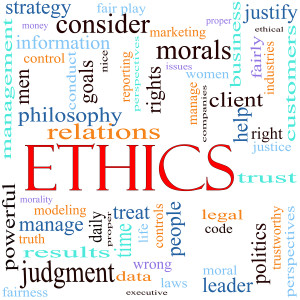What is Character in Business Leadership?
 In this blog I plan to continue on the theme of understanding the importance of character to leadership. In my last blog, I outlined the importance of good character to leaders. Leaders want to enable their followers to exercise independent thinking and decision-making that serves the leaders vision and goal. In order for a leader to feel comfortable with delegating independent decision-making, they must have trust in the person and individuals who exemplify positive character traits are very trustworthy.
In this blog I plan to continue on the theme of understanding the importance of character to leadership. In my last blog, I outlined the importance of good character to leaders. Leaders want to enable their followers to exercise independent thinking and decision-making that serves the leaders vision and goal. In order for a leader to feel comfortable with delegating independent decision-making, they must have trust in the person and individuals who exemplify positive character traits are very trustworthy.
So, what attributes are incumbent in someone of good character? In an article entitled “Developing Leadership Character”, published in the January/February issue of “Leadership”, the authors – Crossan, Gandz and Seijts – cite three key components to effective leadership: competencies, commitment and character. In the article, they define character as: traits, values and virtues. A common dictionary definition of a trait is: “a distinguishing characteristic or quality especially of one’s nature”. Embedded in this definition is the notion of individuals demonstrating a pattern or repetition of action that forms an expectation of behaviour for those who know the individual. In other words, traits are our habits of behaviour that impact how we act. Generally speaking, traits do not change substantially from one moment to the next. They represent our “hard-wired” preferences.
Numerous assessments have been developed to assess individual preferences. These assessments have their foundation in psychiatry and are called psychometric assessments. They offer insights into individual behavioural preferences with a high degree of predictability. One of the most common structures for psychometric assessments is the four quadrant assessment. The Myers-Briggs® Type Indicator (MBTI), DiSC®, Kolbe A™ and MERIT Profile Assessments™ are examples of psychometric assessments that use the four quadrant approach.
The key to understanding a person’s character is to establish how a person’s traits act in conjunction with their values and virtues. It’s like a math equation. Behaviour is a product of hardwired preferences multiplied by values and virtues. It is important to point out that values and virtues are not hardwired in the same way as traits are. Values and virtues can be learned, are a choice and can be changed.
The essence of my point can be summed up by this quote:
“Good character is more to be praised than outstanding talent. Most talents are to some extent a gift. Good character, by contrast, is not given to us. We have to build it piece by piece—by thought, choice, courage and determination.” — John Luther
In future blogs, I will continue to explore the values, virtues and competencies that build good character.
I welcome your feedback. You can connect with me via email or telephone or leave a comment right here on the site.
Dave
David Town, CHRP, is a facilitator and coach of leadership and management principles that enable individuals and organizations to build greater leadership competency, resulting in higher performance and higher employee engagement. David has a particular focus on effectively managing conversations involving confrontation or conflict. As well, he provides insights and assessment strategies for integrating character competencies into leadership skills resulting in increased trust and reduced risk for leaders. David is President of Your Leadership Matters Inc.


Leave a Reply
Want to join the discussion?Feel free to contribute!